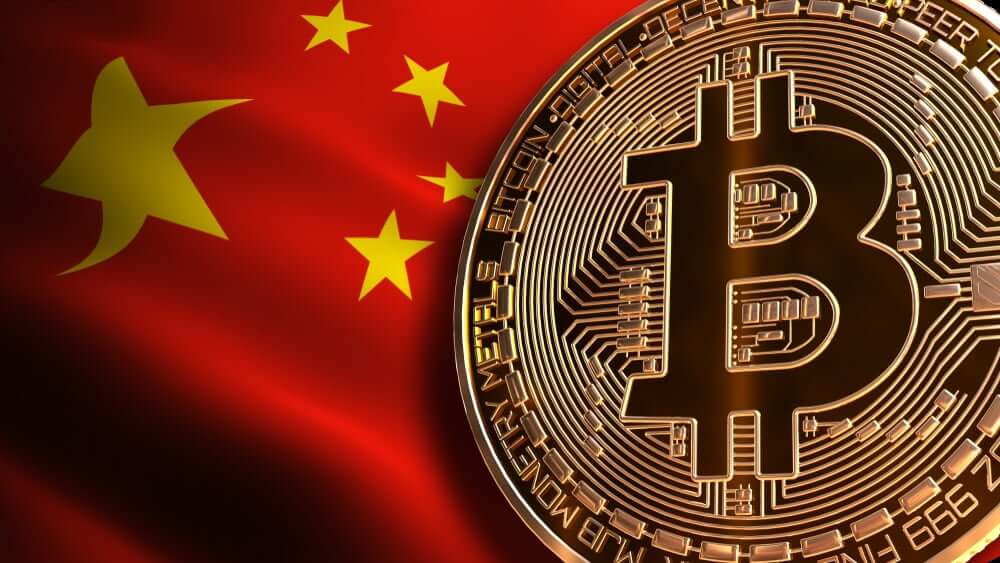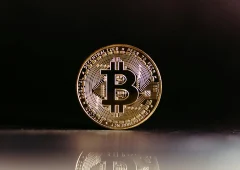China’s Shift to Quantitative Easing Could Propel Bitcoin as a Safe Haven, Says BitMEX Founder
30.10.2024 14:30 1 min. read Kosta Gushterov
Arthur Hayes, the founder of BitMEX and chief investment officer at digital asset fund Maelstrom, has shared his insights on China's potential shift towards quantitative easing (QE) in response to ongoing deflationary pressures.
He believes that such a move will significantly enhance Bitcoin’s appeal as a safeguard against currency depreciation.
In his latest commentary, Hayes notes that China has been facing considerable economic challenges, including stagnant growth, a cooling property market, and declining consumer demand. While Chinese authorities have thus far refrained from implementing aggressive QE measures like those seen in the U.S. and Europe, Hayes anticipates that economic realities will compel a change in strategy towards more robust stimulus efforts.
He asserts that as China injects liquidity into the economy, the increased money supply is likely to diminish the purchasing power of the yuan. In this context, Hayes argues that Bitcoin will emerge as a vital store of value, protecting investors from the adverse effects of currency devaluation.
Hayes further emphasizes that this shift could accelerate Bitcoin adoption both in China and globally, as more investors look to safeguard their wealth against inflation. He points to the growing institutional acceptance of Bitcoin, suggesting that the combination of liquidity-driven market conditions and Bitcoin’s capped supply positions it for long-term price growth.
-
1
Bitcoin’s Parabolic Trend Still Intact – But for How Long?
12.06.2025 12:00 1 min. read -
2
Bitcoin Rewards Coming to Amex Users Through Coinbase Partnership
14.06.2025 18:00 1 min. read -
3
Bitcoin Power Struggle: Strategy and BlackRock Now Control Over 1.3 Million BTC
17.06.2025 17:00 1 min. read -
4
Robert Kiyosaki Predicts 2025 “Super-Crash,” Urges Hoarding Gold, Silver, and Bitcoin
23.06.2025 13:31 2 min. read -
5
Why Rising Energy Prices Could Supercharge Bitcoin, According to Expert
18.06.2025 16:00 1 min. read
Franklin Templeton Warns of Serious Risks in Institutional Bitcoin Treasury Strategies
As institutional adoption of Bitcoin accelerates, U.S. asset management giant Franklin Templeton has issued a cautionary note on the growing trend of crypto-based treasury strategies.
Bitcoin Climbs to $109,500: Why the Price is Up?
Bitcoin rose 1.78% over the past 24 hours to reach $109,500 at the time of writing, driven by surging institutional inflows into spot ETFs, easing global trade tensions, and strengthening technical momentum.
BlackRock’s Bitcoin ETF Now Out-Earning Its $624B S&P 500 Fund
BlackRock’s spot Bitcoin exchange-traded fund (ETF), known by its ticker IBIT, has surpassed the firm’s flagship S&P 500 ETF in annual revenue, according to a new report from Bloomberg.
Robert Kiyosaki Buys More Bitcoin, Says He’d Rather Be a ‘Sucker Than a Loser’
Robert Kiyosaki, author of Rich Dad Poor Dad, revealed on July 1 that he purchased another Bitcoin, reaffirming his long-term bullish stance—even if it comes with personal risk.
-
1
Bitcoin’s Parabolic Trend Still Intact – But for How Long?
12.06.2025 12:00 1 min. read -
2
Bitcoin Rewards Coming to Amex Users Through Coinbase Partnership
14.06.2025 18:00 1 min. read -
3
Bitcoin Power Struggle: Strategy and BlackRock Now Control Over 1.3 Million BTC
17.06.2025 17:00 1 min. read -
4
Robert Kiyosaki Predicts 2025 “Super-Crash,” Urges Hoarding Gold, Silver, and Bitcoin
23.06.2025 13:31 2 min. read -
5
Why Rising Energy Prices Could Supercharge Bitcoin, According to Expert
18.06.2025 16:00 1 min. read


